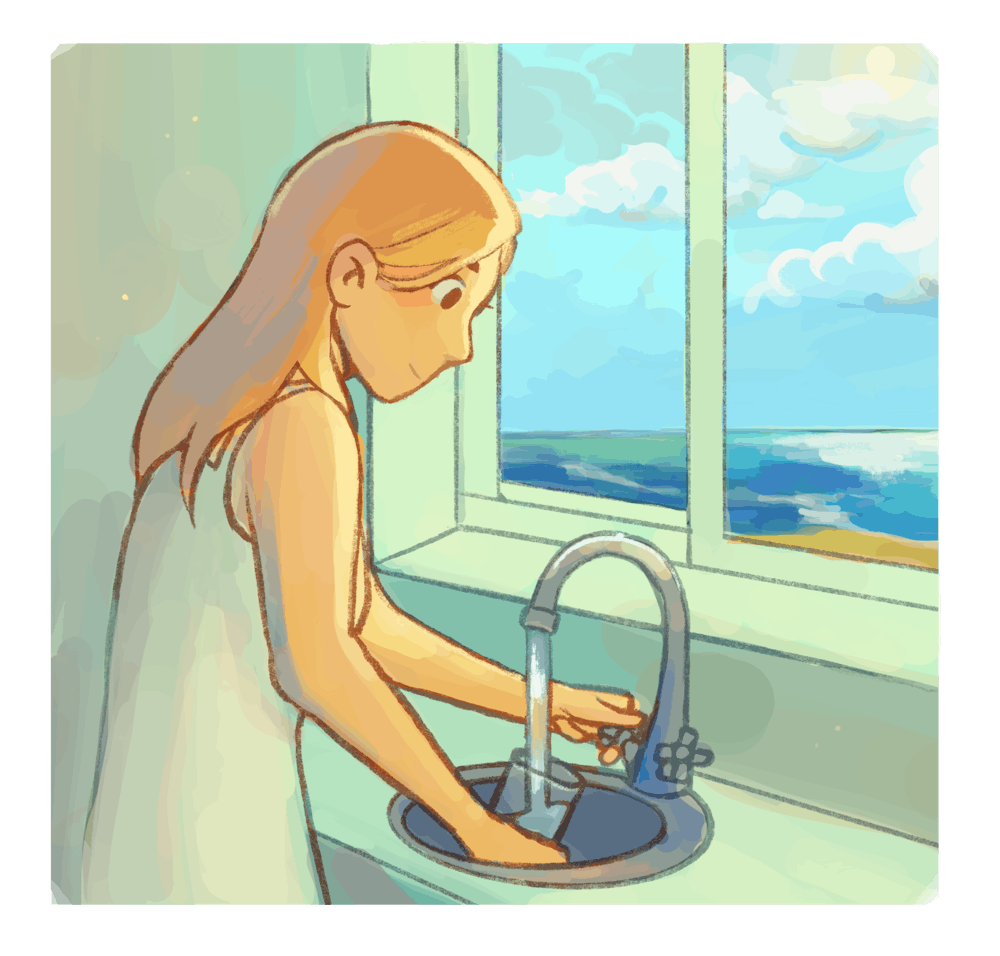This article is part of an Earth Month series exploring environmental issues, climate initiatives and community stakeholders throughout Providence and Rhode Island.
From Poland Spring to Dasani, SmartWater to Fiji, consumers have a variety of options for quenching their thirst. Regardless of the brand, around 58% of American adults find that bottled water tastes better than water from the tap, and a majority say they are concerned about contaminants in their drinking water.
But the Environmental Protection Agency’s Safe Water Drinking Act hopes to make it safe for every resident to drink water straight from their tap. The Herald spoke with state water agencies and suppliers to spill the secrets behind your water.
“Residents can be sure of the safety and quality of our water thanks to our rigorous water testing,” Christopher Hunter, a spokesperson for Providence Water, wrote in an email to The Herald. The Ocean State ranks sixteenth for air and water quality nationwide, according to U.S. News.
About 60% of Rhode Island residents get their drinking water from the Providence Water Supply Board, supplied by The Scituate Reservoir. About 75% of the state population relies at least partially on similar freshwater reservoirs for its drinking water supply. The rest comes from groundwater sources.
After testing, the water supply “gets moved around all over the place,” said Robert Schultz, Jr., the director of utilities for Newport Department of Utilities. “You could be drinking water that’s all the way over from Tiverton in Little Compton.”
According to Schultz, many factors can impact water quality, including wind direction, land development and topography.
As Rhode Island’s population and economy continues to grow, we have to “minimize impacts” to water distribution, according to Christopher Riely, forestry specialist for the University of Rhode Island’s Department of Natural Resources Science.
But ensuring the quality and reliability of the state’s water supply requires a “conservation-oriented development,” Riley added, suggesting that denser development might protect the natural reservoirs which serve as the Ocean State’s primary water source.
After collecting raw water from these sources, the decontamination process is “actually pretty simple,” James Decelles, chief engineer for the Pawtucket Water Supply Board, explained. The water goes through a clarification process and carbon filters prior to chemical treatment. Following this process, the treated water is pumped into the general distribution system, he said.
Throughout the entire process, the water is continuously tested. “We do more testing than I care to think about,” Decelles said.
The testing process can include grab-samples and mechanized analyzers, along with trained operators overseeing every step along the way, Schultz said. In 2022, Newport Water conducted more than 80,000 tests, according to their 2022 Water Quality Report.
“Ultimately, the water quality is exceptional (by the time) it leaves the plant,” Schultz added.
But testing water quality is getting more expensive due to increasing federal regulations and test requirements, Decelles said.
Last Tuesday, the EPA set forth another testing requirement for per- and poly-fluoroalkyl substances — artificial “forever chemicals” found in small doses in drinking water. The new regulation sets enforceable maximum contaminant levels at 4.0 parts per trillion for each chemical. According to Decelles, these levels are the lowest testable quantities with modern-day technology.
“Back in the day, parts per million was a lot. We’re in parts per trillion now,” he said.
Schultz said an increase in the cost of testing will fall on water consumers. Trying to balance the need for strict regulations with the need to keep water bills affordable is difficult when “you have pressures coming from all different sides,” he said.
According to Schultz, water engineers are required to address certain topics and regulations, while also keeping general requirements and affordability in mind.
After all the testing is complete, “we put out a pretty darn good product,” Decelles said. He added that tap water goes through far more vigorous testing and strict regulations than bottled water.
“Especially with all the other stuff we eat and drink, the least of my worries is the water,” Decelles said.

Maya Kelly is a senior staff writer from Providence who covers business and development. A concentrator in urban studies and data fluency, she is passionate about intersecting storytelling with data analysis. When Maya's not at The Herald, you can find her hanging from an aerial silk, bullet journaling or in the middle of a forest.





